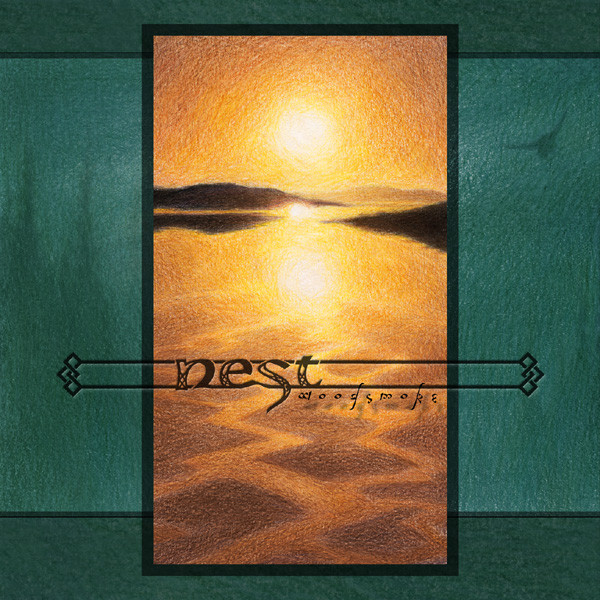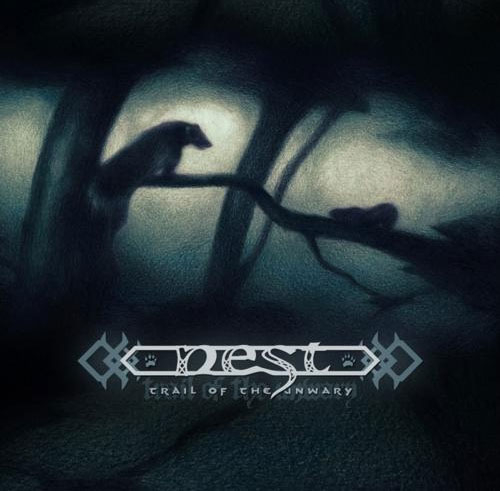As one delves deeper into music in general, the ear becomes more critical, observing not only melodic hooks and rhythmic flourishes but also song and album structures and other various nuances. Throughout my musical experience, my opinion of one of my favorite artists, Opeth, has been constantly subject to change as a result of this growth. The reason that my view of the "progressive" metallers has been subject to change is because, unlike the majority of bands that either understand all of the above musical elements or none of them, Opeth takes an advanced approach to melody and dynamics but displays a warped view of songwriting.
This is most apparent in their earliest material, where songwriting ability is at an all-time low. Make no mistake, these awkward transitions and fills are not the progressive genius that fans often make them out to be, constantly drawing comparisons to Pink Floyd, Camel, and the like. The song-writing on albums like Orchid or Morningrise is genuinely abysmal, and, while the transitions are somewhat more subtle on later albums, Opeth never quite become great songwriters by any means.
So why, you are surely asking yourselves, is Opeth amongst my favorite artists, if their song structures are seemingly non-sensical to the trained ear? To answer that question, it is, first of all, because Opeth truly excels in their melodies and riffcraft, the first things the ear notices. Secondly, when such elements make a deep impression on an impressionable listener, there is, as is the case with myself, an element of nostalgia present in each listen. As a result, each time I listen to Opeth, while I have become aware of their lacking song-writing abilities, I simply get lost in each individual movement, looking past the poorly structured whole.
A perfect example is "The Twilight Is My Robe" off of Orchid ("black metal nonsense" indeed, to quote Mikael Akerfeldt); between the first lengthy acoustic passage of the song and the following melodic metal riff is the most out-of-place bass fill these ears have ever heard. At first listen, it can completely kill the mood set by the preceding acoustic passage. However, as one's ears adjust to Opeth's structural style (or, arguably, lack thereof), one can look past the awkward transition and see the two passages for what they are: separate movements with little to no connection that are, on their own, intensely emotional and powerful pieces of music.
Monday, June 27, 2011
Saturday, June 25, 2011
Nest (Fin)
Possibly a distant second to old school metal, neo-folk is one of my favorite genres of music. The best artists in the neo-folk movement capture this ethereal ambience in their music that post-rock or modern classical musicians often only hope to achieve. While I have been more emotionally affected by works like Vali's Forlatt or Ulver's Kveldssanger, Nest (the Finnish artist, not the equally popular modern classical artist from Norway) holds a special place in my heart these days.
Whereas artists like Ulver, Vali, or October Falls utilize common instruments like the nylon-string guitar or various woodwinds to achieve their type of beauty, Nest utilizes instrumentation more traditional to their homeland. The result is that Nest's atmosphere is very reminiscent of nature itself. Specifically, the kantele, an instrument not unlike some sort of Finnish harp, and the Lapland drums dominate Nest's music.
As for which album I prefer, I really can't say at this juncture. I tend to lean towards Woodsmoke because it simply has more memorable moments; however, Trail Of The Unwary is arguably the more accomplished release of the two. The latter appeals to the more diverse musical pallet with its more drawn-out songwriting and its usage of more diverse instrumentation. The former is a much more simplified release that mostly showcases the group's ability to write melodies on the kantele, but, as noted above, the fact that these melodies are infectious and atmospheric simply cannot be ignored.
Deathspell Omega - "Fas - Ite, Maledicti, In Ignem Aeternum" - An Old Album Review
A couple of years ago I wrote several extensive reviews of various albums, and the review below remains my favorite of the bunch. Throughout my freshman year in college, this band was essentially my favorite band of all time. The album title is a reference to the Latin Vulgate, meaning "By divine law, go, you cursed, into the eternal fire!"
Deathspell Omega is a black metal band often associated with the orthodox black metal movement and the legendary Norma Evangelium Diaboli label; however, with the release of Fas – Ite, Maledicti, in Ignem Aeternum, labeling Deathspell Omega as merely another black metal band in the vein of Anteaus or Katharsis discredits the band’s astounding abilities and creativity. This release not only defies the standards typical of black metal but also is one of the most interesting musical pieces ever heard by these ears.
Fas has an entirely unique sound unlike anything I’ve ever heard; however, if one were to attempt to draw comparisons, the jarring rhythms of Gorguts’ Obscura, the dissonant arpeggios of The Chasm, the eerie ambient sections from Blut Aus Nord’s The Work Which Transforms God, and the grindcore-esque blasting and aggression of Blasphemy all come to mind. The metal portions of the music are essentially comprised of the most dissonant chord progressions one can imagine, all shrouded under noisy blast beats and the occasional wild guitar solo. Due to both the speed, dissonance, and complexity of the guitar work and the production, any of the four main compositions of Fas would be a nightmare to tab. Indeed, I am sometimes awed that the album is played by humans. As far as the drums are concerned they are mixed so loudly that they could be considered the album’s chief flaw, but I find that the drums only enhance the album’s dark mystique by making the guitar work even more difficult to discern.
The album is not entirely comprised of these chaotic sections, but rather these blasting parts are tastefully contrasted with both disturbing choral sections and eerie segments of multi-tracked guitars, drenched in reverb. For instance, each “song” ends in about a minute of quiet ambience made up of mad choirs and creepily out-of-tune pianos, all building suspense for the utter chaos of the album’s heavier sections. In addition, the compositions contain dissonant, for lack of a better word, “mellow” sections as seen in “Obombration”, the interlude of “Bread of Bitterness”, or the intro of “The Repellent Scars of Abandon & Election” that include multiple tracks of droning guitars and the same disturbing out-of-tune piano.
While Fas deviates from Deathspell Omega’s past works with far more chaotic guitar work, more eerie atmospheric sections, and the addition of guitar solos, a few elements remain consistent with recent works such as “Diabolus Absconditus”. Mikko Aspa uses the same evil growl, and the lyrics are in a similar vein to other works, looking more like the insane musings of a theologian than the lyrics of a black metal band.
What is most intriguing about Fas is not any one of these elements alone but rather the effect that all of these elements have on the patient listener. The metal sections of each composition are so difficult to comprehend and the ambient sections are so dense and eerie that the album can only be fully digested, if ever, after many listens. While some would consider the sheer chaos of Fas to be a flaw, it makes the album of a more interesting listen, as the listener must attempt to find some order out of the chaos. Having listened to the album fifty times or so myself, I still find new nuances amidst the chaos, making Fas – Ite, Maledicti, in Ignem Aeternum, one of the most rewarding listens of my musical collection.
Deathspell Omega is a black metal band often associated with the orthodox black metal movement and the legendary Norma Evangelium Diaboli label; however, with the release of Fas – Ite, Maledicti, in Ignem Aeternum, labeling Deathspell Omega as merely another black metal band in the vein of Anteaus or Katharsis discredits the band’s astounding abilities and creativity. This release not only defies the standards typical of black metal but also is one of the most interesting musical pieces ever heard by these ears.
Fas has an entirely unique sound unlike anything I’ve ever heard; however, if one were to attempt to draw comparisons, the jarring rhythms of Gorguts’ Obscura, the dissonant arpeggios of The Chasm, the eerie ambient sections from Blut Aus Nord’s The Work Which Transforms God, and the grindcore-esque blasting and aggression of Blasphemy all come to mind. The metal portions of the music are essentially comprised of the most dissonant chord progressions one can imagine, all shrouded under noisy blast beats and the occasional wild guitar solo. Due to both the speed, dissonance, and complexity of the guitar work and the production, any of the four main compositions of Fas would be a nightmare to tab. Indeed, I am sometimes awed that the album is played by humans. As far as the drums are concerned they are mixed so loudly that they could be considered the album’s chief flaw, but I find that the drums only enhance the album’s dark mystique by making the guitar work even more difficult to discern.
The album is not entirely comprised of these chaotic sections, but rather these blasting parts are tastefully contrasted with both disturbing choral sections and eerie segments of multi-tracked guitars, drenched in reverb. For instance, each “song” ends in about a minute of quiet ambience made up of mad choirs and creepily out-of-tune pianos, all building suspense for the utter chaos of the album’s heavier sections. In addition, the compositions contain dissonant, for lack of a better word, “mellow” sections as seen in “Obombration”, the interlude of “Bread of Bitterness”, or the intro of “The Repellent Scars of Abandon & Election” that include multiple tracks of droning guitars and the same disturbing out-of-tune piano.
While Fas deviates from Deathspell Omega’s past works with far more chaotic guitar work, more eerie atmospheric sections, and the addition of guitar solos, a few elements remain consistent with recent works such as “Diabolus Absconditus”. Mikko Aspa uses the same evil growl, and the lyrics are in a similar vein to other works, looking more like the insane musings of a theologian than the lyrics of a black metal band.
What is most intriguing about Fas is not any one of these elements alone but rather the effect that all of these elements have on the patient listener. The metal sections of each composition are so difficult to comprehend and the ambient sections are so dense and eerie that the album can only be fully digested, if ever, after many listens. While some would consider the sheer chaos of Fas to be a flaw, it makes the album of a more interesting listen, as the listener must attempt to find some order out of the chaos. Having listened to the album fifty times or so myself, I still find new nuances amidst the chaos, making Fas – Ite, Maledicti, in Ignem Aeternum, one of the most rewarding listens of my musical collection.
About This Blog
Hello readers, I'm Nathan. I'm passionate about a wide range of music from classical to post-punk to neo-folk, but my favorite genre of music is old school heavy metal. The purpose of this blog is essentially to act as a place for my musical ramblings, although I share my thoughts on a number of forums as well. The name "Flaming Metal System" comes from a Manilla Road song.
Subscribe to:
Comments (Atom)

